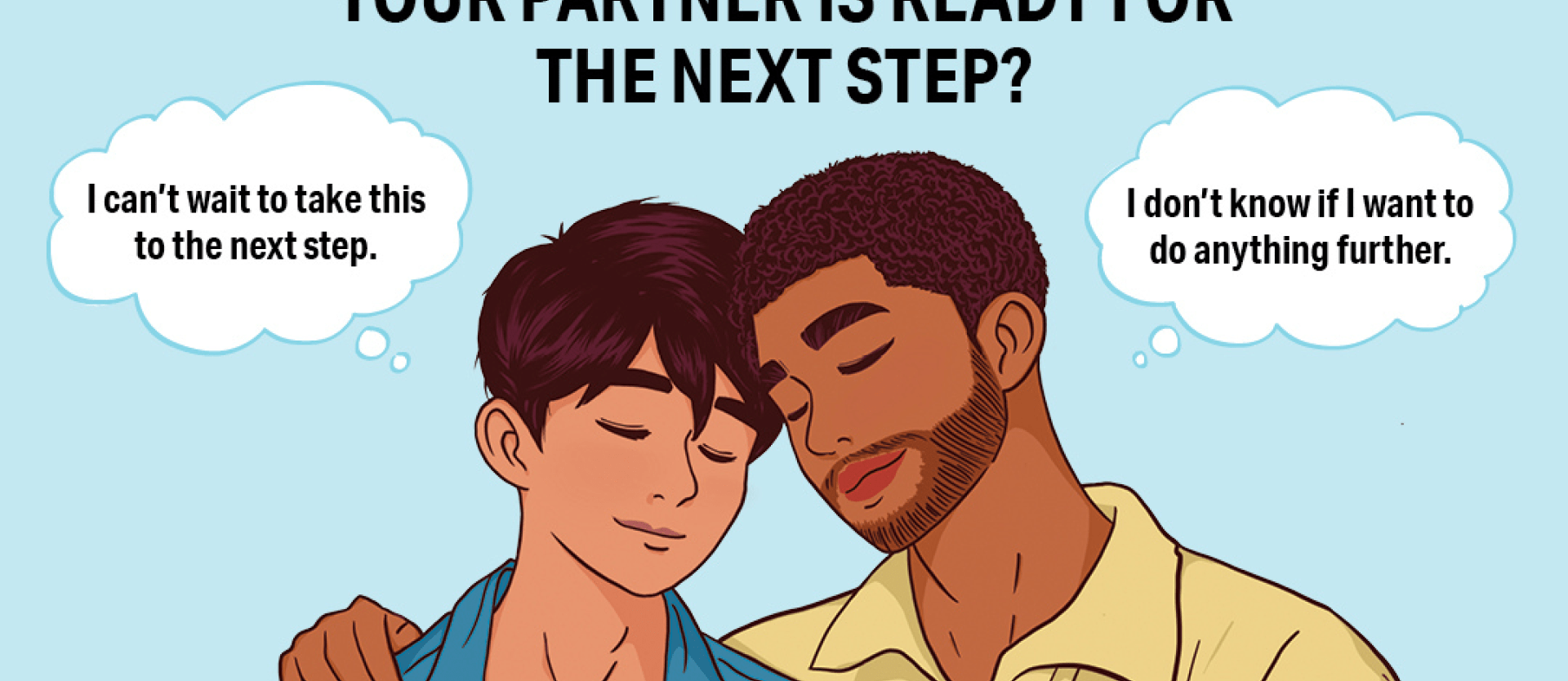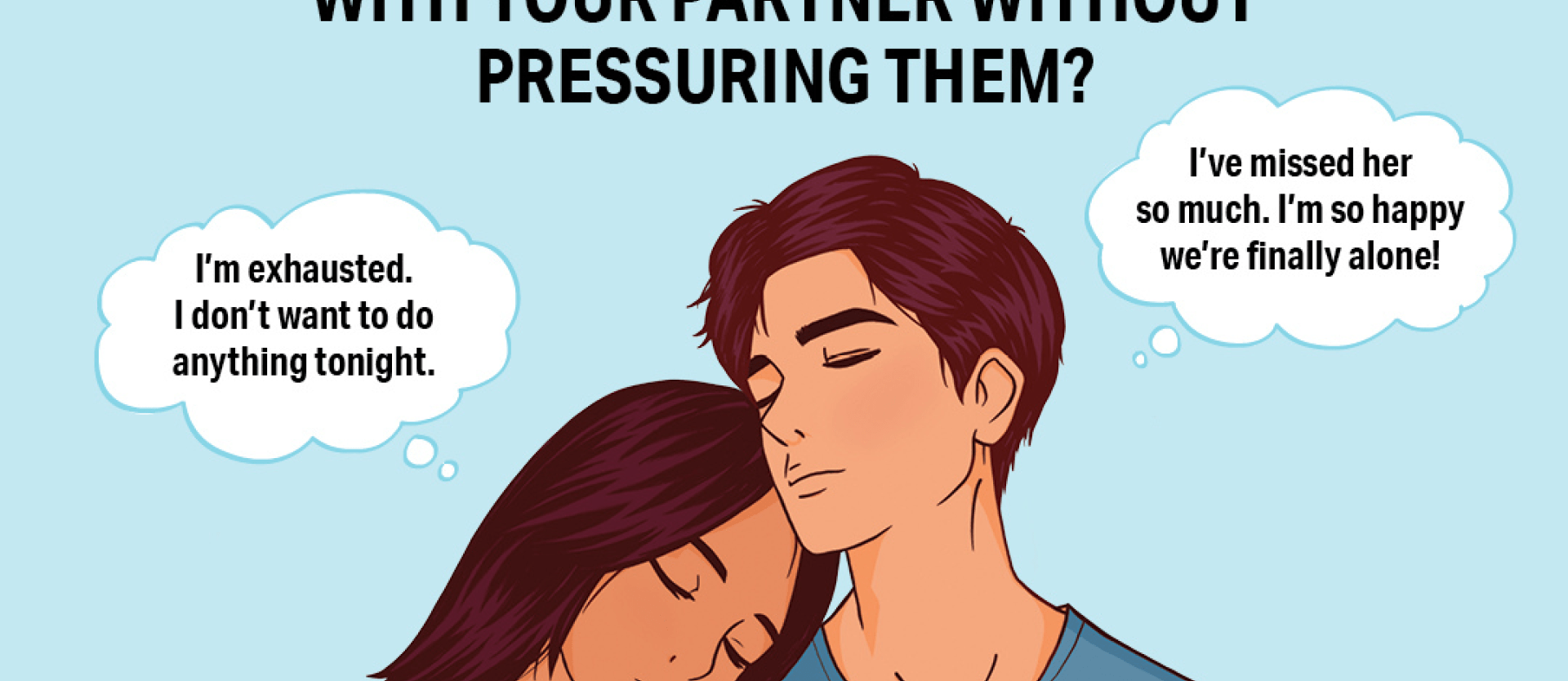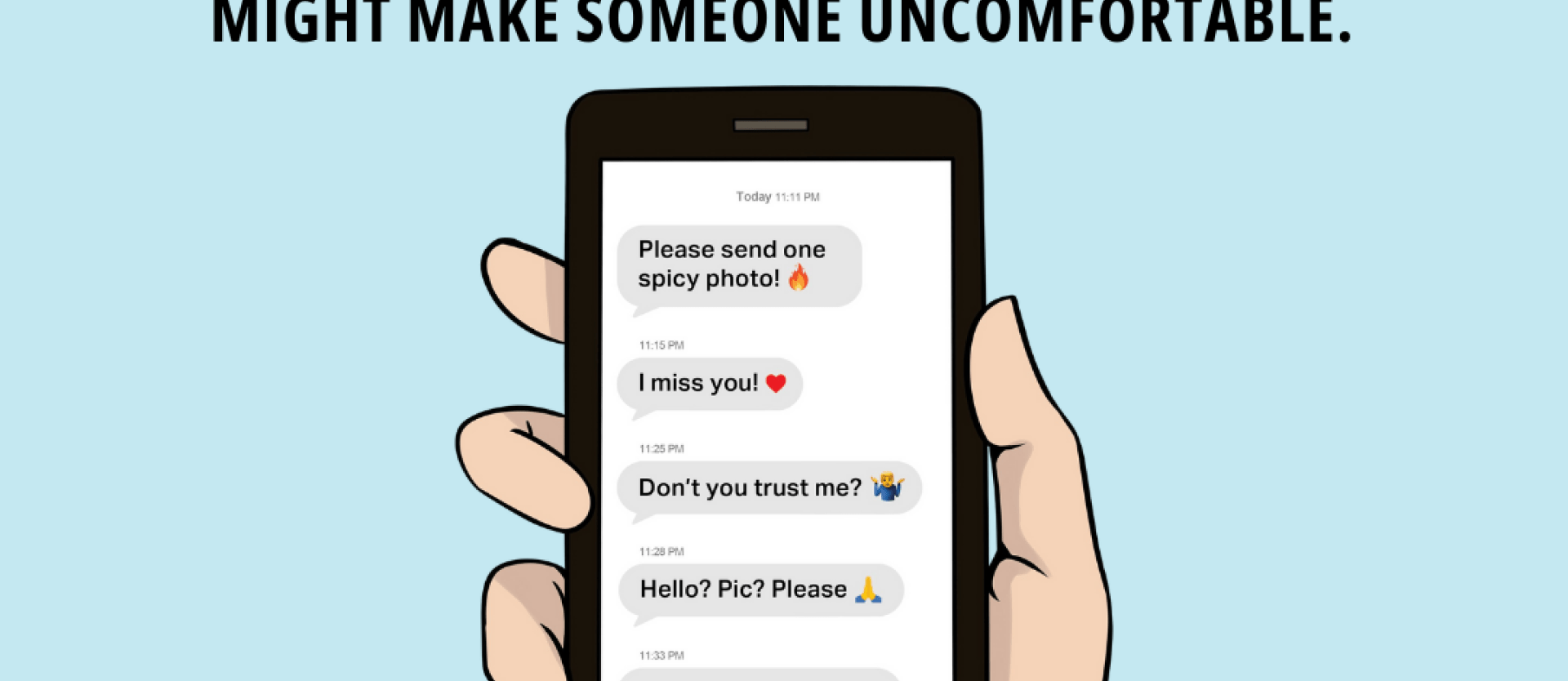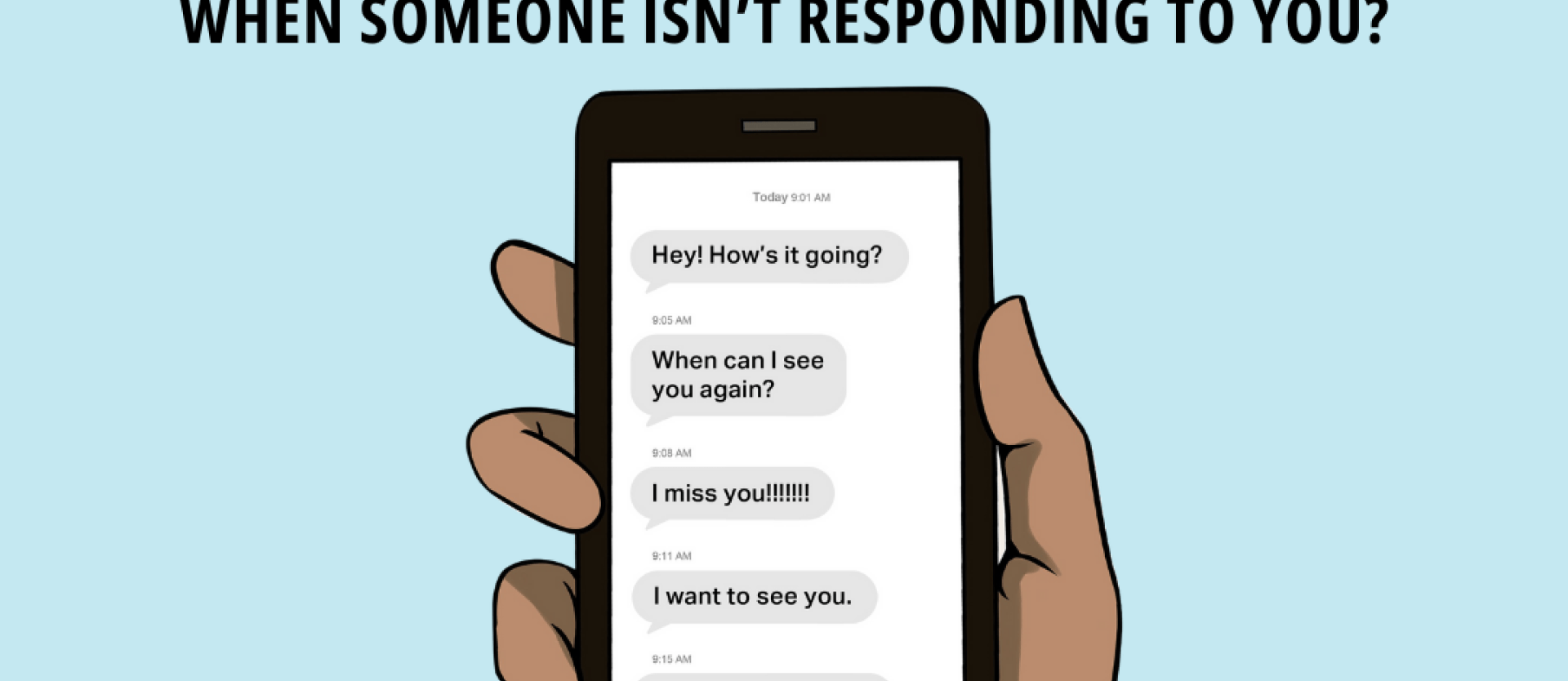Breadcrumb
Prevention Efforts
CHECK IT
CHECK IT launched at Humboldt in Feb. 2014. It is a student-led movement that is aimed at creating a more consent centered culture and empowering us to take action when we witness potential moments of sexual assault, dating violence and stalking in our community. It’s also about creating a community where we listen to, believe, and support survivors and make clear to those who choose to commit acts of harm that it's unacceptable. CHECK IT has many opportunities for students to volunteer and be a part of the movement. Visit their website for more information on how to get involved.
Office of Diversity, Equity, and Inclusion (ODEI)
ODEI is focused on systems change in support of equitable and inclusive learning and community spaces. Examples of this strategic approach to dismantling institutional and systemic racism include involvement with ongoing training for all faculty, staff, and administrators as well as implementing new policy and revising inequitable practices that create institutional racism. In addition to offering educational opportunities for the Humboldt community, ODEI supports the recruitment and retention of faculty and staff of color. Finally, as a campus community ODEI's mission is to strive forward with asset-based equity, student success, and student-centered initiatives that create equity, value diversity and inclusion.
Ombuds Office
The Humboldt Ombuds service is open to all students, faculty, and staff. They offer a safe place to discuss problems or issues within the University, and can help you identify options for addressing specific concerns and resolving conflicts. Ombudspersons treat all inquiries as confidential (except as required by law or where there appears to be imminent risk of serious harm).
Reducing the Risk
Dating & Domestic Violence
Dating/Domestic violence is a pattern of abusive behaviors used to exert power and control over a partner. It can be physical, sexual, emotional, economic or psychological actions or threats of actions that influence another person. This includes any behaviors that intimidate, manipulate, humiliate, isolate, frighten, terrorize, coerce, threaten, blame, hurt, injure or wound someone.
Dating/Domestic violence can happen to anyone regardless of race, sexual orientation, social economics, education, age, religion, etc., and can also affect family, friends, co- workers and members in the community, in addition to the victim and abuser. Domestic violence can occur regardless of the relationship status, including individuals who are dating, cohabitating, or married.
There usually is a pattern or a repeated cycle of dating violence, starting with the first instance of abuse.
- Tension Building: Relationship begins to get strained or tense between partners.
- Explosion: Outburst that includes verbal, emotional, or physical abuse.
- Honeymoon: Apologies where the abuser tries to re-connect with theirpartner by shifting the blame onto someone or something else.
What Dating/Domestic Violence Can Look Like
Any actions used for the intent of gaining power and control over a person:
- Physical Abuse: any intentional use of physical force with the intent to cause injury (i.e. grabbing in a way to inflict pain, hitting, shoving, strangling, kicking)
- Emotional Abuse: non-physical behaviors such as threats, insults, constant monitoring, humiliation, intimidation, isolation, silent treatment, or stalking
- Sexual Abuse: any action that impacts the partner’s ability to control their sexual activity or the circumstance which sexual activity occurs, including rape, coercion or restricting access to birth control
Warnings or Signs of Potential Dating/Domestic Violence
Ask yourself if your partner engages in one or any of the following activities:
- Checks my cell phone or email without my permission
- Monitors where I’m going, who I’m going with, what I’m doing
- Repeatedly says or does things to make me feel inadequate or inferior to them
- Extreme jealously or insecurity
- Isolates me from my friends and family
- Explosive temper
- Mood swings
- Assumes financial control over my access to financial resources
- Tells me what to do
- Possessiveness
- Physically hurts me in any way
The OneLove Project has additional resources on how to love better and recognizing healthy and unhealthy relationship behaviors. CHECK IT, our campus' sexual violence bystander intervention program also has activities around healthy relationships called "Love KNOWS Boundaries".
Sexualized Violence
If you find yourself in the position of being the initiator of sexual behavior, you owe sexual respect to your potential partner. These suggestions may help you to reduce your risk of being accused of sexual misconduct:
- Clearly communicate your intentions to your sexual partner and give them a chance to clearly relate their intentions to you.
- Understand and respect personal boundaries.
- DON’T MAKE ASSUMPTIONS about consent, about someone’s sexual availability, about whether they are attracted to you, about how far you can go or about whether they are physically and/or mentally able to consent. If there are any questions or ambiguity then you DO NOT have consent.
- Mixed messages from your partner are a clear indication that you should stop, defuse any sexual tension and communicate better. You may be misreading them. They may not have figured out how far they want to go with you yet. You must respect the timeline for sexual behaviors with which they are comfortable.
- Don’t take advantage of someone’s drunkenness or drugged state, even if they did it to themselves. Incapacitation means a person is unable to give valid consent.
- Realize that your potential partner could be intimidated by you, or fearful. You may have a power advantage simply because of your gender or size. Don’t abuse that power.
- Understand that consent to some form of sexual behavior does not automatically imply consent to any other forms of sexual behavior.
- Silence and passivity cannot be interpreted as an indication of consent. Read your potential partner carefully, paying attention to verbal and non-verbal communication and body language. You need Affirmative Consent.
Reducing Your Risk
Risk reduction tips can often take a victim-blaming tone, even unintentionally. With no intention to victim-blame and with recognition that only those who commit sexual violence are responsible for those actions, these suggestions may nevertheless help you to reduce your risk of experiencing a non-consensual sexual act:
- If you have limits, make them known as early as possible.
- Tell a sexual aggressor “NO” clearly and firmly.
- Try to remove yourself from the physical presence of a sexual aggressor.
- Find someone nearby and ask for help.
- Take affirmative responsibility for your alcohol intake/drug use and acknowledge that alcohol/drugs lower your sexual inhibitions and may make you vulnerable to someone who views a drunk or high person as a sexual opportunity.
- Take care of your friends and ask that they take care of you.
- In an emergency, call 9-1-1
Request a Training
Our office is available to facilitate a variety of trainings to your organization, department, or team. Please allow at least 3 weeks advance notice so that we can have adequate time to prepare.
Sexual Assault Prevention Committee
Humboldt’s Sexual Assault Prevention Committee (SAPC) is comprised of faculty, staff, students, law enforcement, and community partners, including advocates from the North Coast Rape Crisis Team. The SAPC is working toward eliminating rape and all forms of sexualized violence. Their website works within a survivor-centered framework in order to prioritize the healing and safety of the survivor.
University Police Department (UPD)
Officers are available to conduct escorts in special circumstances, or outside of the hours when student escorts are available. To request a safety escort, call (707) 826-5555. Blue lights are mounted near the outdoor courtesy phones for ease in locating them.
ValorUS
ValorUS considers prevention an essential element of its activities. Sexual violence prevention goes beyond creating awareness of the issue and alerting community members of services available. It requires shifting the community norms that contribute to sexual violence, promoting the norms and behaviors that we want to see and participating in efforts to advance social justice. Webinars, trainings, podcasts, and many other resources are available for free at their website.
April is Sexual Assault Awareness Month
Hold up. Wait a minute. Slow down. Think about it.
The CSU Systemwide Sexual Assault Awareness Month (SAAM) Campaign is focused on raising awareness around the need to stop, avoid making assumptions, and demonstrate care by making sure all parties are on the same page and consent is clear. We hope these materials help highlight the importance of not taking advantage of or making assumptions in situations where clarity is lacking, and ensuring consent is clear before taking any given action.
Click through the images to see different scenarios for this year's SAAM campaign. Click here to save and use the SAAM Zoom background.
Campus Advocate Team - works with, not for, the University - has a free, 24/7 hotline if you are in need of confidential support: (707) 445-2881. They have Spanish language options; TTY line available M-F 8:30 am to 5:00 pm; Text Line M-F 8:30 AM - 4:30 PM (707) 382-5174.









